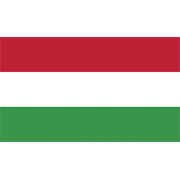Fiscal subject related
The Hungarian Tax Authority (NAV) has published a new document called :User Manual for NAV e-cash register application. As stated by the NAV, the purpose of the NAV eKassagép (mobile) application is to provide a simple, modern, and compliant solution for issuing receipts.
The document User Manual 1.0 explains how to log in, configure settings, and execute transactions through the NAV's mobile application. It details steps for managing users, handling returns, generating reports, and troubleshooting typical issues. Security, data integrity, and compliance with NAV's tax reporting standards are emphasised throughout the manual. It is intended to ensure proper operation by both technical and non-technical personnel using the system.
This manual provides step-by-step instructions for installing and registering the application on a mobile device, configuring essential settings such as PIN codes and biometric login, and linking compatible printers for receipt output.
The app is especially beneficial for small businesses that want to reduce their administrative burden and costs and provide faster and more transparent customer service.
The application has a multilingual user interface. At the moment, three languages are available: Hungarian, English and German.
After installing the application, the e-cash register must be activated on the given mobile device. During activation, the mobile device is registered, and the cloud-based eCash register instance is connected to the given device. Among the detailed step-by-step processes on how to use this application developed by the Hungarian TA, there is an explanation of how to connect it to the compatible printers, i.e., to use the NAV e-cash Register App, it is necessary to connect a compatible printer via a Bluetooth connection.
The published document is quite detailed, informing its readers on many topics and how to handle them by using this new TA application (including procedures for managing daily cash register functions, issuing and viewing different types of receipts, specifying when and how QR codes must be generated, and many more).
Overall, the manual is structured to accommodate a wide range of user needs, from first-time setup to daily operations and troubleshooting. The above-explained application for which the User manual is published is primarily intended for micro and small businesses in Hungary. According to the user manual, its simplified setup and operation are designed to accommodate business operators who do not have extensive technical infrastructures. More details on its functionalities and process of installation are available at the NAV webpage dedicated to new e-cash registers.
Other news from Hungary
NAV's e-cash register and eReceipt application are now available in Hungary.
 Hungary
Author: Tara Nedeljković
Hungary
Author: Tara Nedeljković
Hungary has launched the NAV-developed e-cash register (ePG) and eReceipt applications as part of its shift toward fully digital retail reporting, with current use being voluntary but encouraged. From September 1, 2026, businesses not using traditional cash registers must report receipts digitally, making early adoption of the new system beneficial. Read more
Subscribe to get access to the latest news, documents, webinars and educations.
Already subscriber? Login


Mandatory Cash Acceptance Brought With Legal Changes Impacts Retail Businesses in Hungary
 Hungary
Author: Tara Nedeljković
Hungary
Author: Tara Nedeljković
Hungary has introduced a legal amendment effective July 1, 2025, requiring retailers to ensure customers can pay with cash, including through physical stores, cash on delivery, or account deposits, with exceptions for online subscriptions, cross-border e-sales, and fully automated stores. The National Trade Association (OKSZ) criticized the law, warning that it imposes unrealistic obligations on self-service stores, parcel lockers, and vending machines, potentially causing service disruptions and high conversion costs. Read more
Subscribe to get access to the latest news, documents, webinars and educations.
Already subscriber? Login


End of intra-model European electronic invoice and new rules introduced
Starting July 1, 2030, the EU will eliminate the Intra models for VAT reporting, replacing them with mandatory electronic invoicing under Directive 516/2025. The new system, part of the VIDA 2030 Package, will require businesses to issue standardized e-invoices for all intra-EU B2B transactions, with data transmitted to VIES for cross-border VAT monitoring and fraud prevention. This shift aims to... Read more



The customer application features and usage with the new e-cash registers in Hungary
 Hungary
Author: Tara Nedeljković
Hungary
Author: Tara Nedeljković
Hungary’s new e-cash register system includes a certified customer application that allows users to access, manage, and securely store their e-receipts through mobile or web platforms. The app offers mandatory features such as QR code scanning, receipt downloads, transaction history export, and receipt delivery preferences, while also supporting loyalty integrations and multilingual options. Read more
Subscribe to get access to the latest news, documents, webinars and educations.
Already subscriber? Login


Hungarian authorities are discussing the benefits of introducing e-cash registers and replacing online cash registers.
 Hungary
Author: Tara Nedeljković
Hungary
Author: Tara Nedeljković
Hungarian tax authorities are promoting the transition from online cash registers to new e-cash registers, highlighting cost savings, easier maintenance, and the elimination of mandatory receipt storage due to a built-in receipt archive. Businesses will have the option to use either hardware-based or cloud-based e-cash registers, with a free smartphone app version available for small businesses, while the use of online cash registers will remain permitted until 1 July 2028. Read more
Subscribe to get access to the latest news, documents, webinars and educations.
Already subscriber? Login


Hungary enacts the long-awaited official legislation on e-cash register requirements!
 Hungary
Author: Tara Nedeljković
Hungary
Author: Tara Nedeljković
Hungary has officially enacted the long-awaited 8/2025 (III. 31.) NGM Decree, also known as the EPG Decree, establishing the legal framework for electronic cash registers (e-cash registers) and e-receipts. Starting July 1, 2025, taxpayers may voluntarily adopt certified hardware-based e-cash registers, with mandatory transition for relevant sectors by July 1, 2028. The National Tax and Customs Adm... Read more


